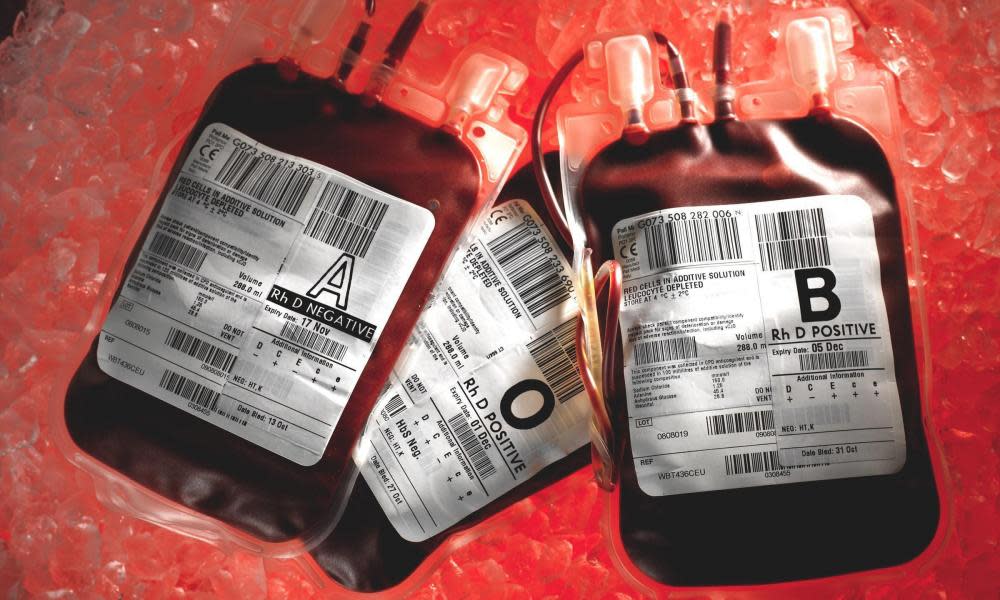‘My family was destroyed’: relatives of blood scandal victims get nothing

With the news that thousands of the parents and children of the blood scandal victims are receiving nothing in interim government payments, we examine some of the cases.
Tony Farrugia, 50
Tony Farrugia, whose father, Barry, died from HIV and hepatitis C in 1986 after being treated for haemophilia with contaminated blood products, is one of thousands of family members still waiting for compensation.
“This announcement is another slap in the face because, although they’re recognising some families, they are not recognising others who have suffered the same fate. This is the cheapest option. There are at least 2,000 families that are completely excluded – the government has just blanked us. The message to children and parents is that we don’t matter.”
Related: Survivors of contaminated blood scandal awarded interim payments
Farrugia, who now lives in St Neots, was placed into care as a child and separated from his brothers when his father suffered HIV-related dementia before his death. “My family were destroyed by this. I didn’t see my twin brother again until I was 18, I didn’t see my other three brothers until 2010. It is almost like we were watered down as a family so we couldn’t speak out.”
In March, a review by Sir Robert Francis recommended the government implement a full compensation framework for victims and their families. Farrugia said: “It is time the government implemented that report in full. To not act on the full recommendations is denying the victims justice.”
Emma Frame, 49
Emma Frame, from Newcastle, was 18 when she lost her father, Jeffrey, to HIV and hepatitis C. She said: “It is vital that interim payments are given as soon as possible to those infected who are still suffering.”
But she added: “The government are trying to make this look good, but none of it is good. Everybody affected should be included in the scheme. It’s not about the money. I’m fighting for somebody to admit that my Dad should still be here.
“I was 11 when I was told that my Dad had a disease that nobody wanted to talk about, when leaflets were going through doors telling us how awful it was going to be. It was horrendous. I have suffered with mental health problems all my life. And it affects generations – my son Charlie is angry that he can only see his grandpa in pictures.”
She added: “The government needs to admit this was preventable and compensate people for lives they have had stolen from them.”
Rosemary Calder, 74
Rosemary Calder, from Northamptonshire, is concerned that she may never see compensation for the death of her son Nicholas in 1999 after he was infected with HIV.
Calder, who runs a support group for parents bereaved in the scandal, said: “I’d like to think we’ll get compensation but none of us are getting any younger.
“There’s lots of anxiety and stress among parents who are just constantly overlooked. I’ve missed out on Nicky being a part of my life. I’ve missed out on his love and companionship. No money can buy that. But paying compensation is the only way the government can show any kind of contrition.”
She said Nicholas’s death had a “massive impact” on her family. It led to the breakdown of her marriage, while her other son is still having counselling for survivor’s guilt and her daughter cannot talk about Nicholas without crying.
Jason Evans, 32
Jason Evans, whose father, Jonathan, died in 1993 after being given an untreated blood product known as Factor VIII, is the co-founder of the campaign group Factor 8. He is also the lead claimant in a high court case seeking compensation, which is on hold until the conclusion of the inquiry.
He said: “A lot of us do have a fear that the government are dragging their feet over a more extensive compensation scheme. Some welcome the money but others are frankly embarrassed by it. It is creating division that will only get worse if half of the bereaved families don’t get help.”
Figures Evans obtained in a freedom of information request showed that of the 1,243 haemophiliacs who contracted HIV in England as a result of the scandal, only 229 survivors currently receive support. They show that 228 bereaved partners are being supported but 798 families of those who died from HIV via contaminated blood have received no support.

 Yahoo Movies
Yahoo Movies 
